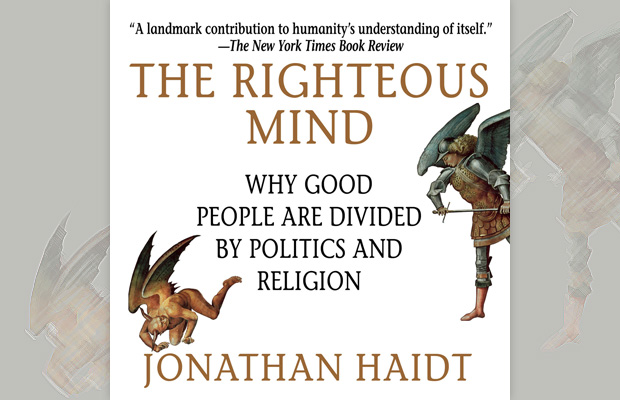Rethinking Lifestyle
We are Starting to Know Ourselves

We certainly know more about our physical world now than we did 10,000 years ago. It is incredible to see what we now know that we didn’t know even 100 years ago.
However we know a whole lot less about ourselves, Homo sapiens. We are just now starting to get results of our long term explorations into knowing ourselves. Yuval Noah Harari gives a good overview of what we know in his recent book Sapiens: A Brief History of Humankind. I found this to be an excellent and insightful read.
But here I want to focus on another book I recently discovered: Jonathan Haidt’s The Righteous Mind. In this book Haidt explores the origin of our morality and what it is. He tries to answer the question the book’s subtitle poses: “Why good people disagree about politics and religion”.
It seems to me that in part, at least, the reason the big issues of our time, issues like climate change, do not get solved, is that we are separated by our politics and our religion. Dare I say that the environmentalists are typically politically on the left and people who are more interested in economics are politically more on the right. Both economics and the environment need to be included when we try to solve our big problems. So how do we get the left and the right together to work on the big problems without getting sidetracked by politics? I found Jonathon Haidt’s explanations on morality very helpful in thinking about this.
Haidt suggests our morality is similar to the taste buds on our tongue. Haidt says that our morality is based on six foundational principles: harm/care, fairness/reciprocity, liberty, ingroup/loyalty, authority/respect and purity/sanctity. He goes on to say that people on the political left base their morality on only three of the six foundations: care, fairness and liberty. People on the political right use all six of the foundations to define their morality. Haidt says conservatives can predict the liberal answer to specific questions quite accurately because they have only the three foundations of morality. On the other hand liberals find it hard to understand conservatives especially on loyalty, authority and purity which are not liberal foundations. Of course there are nuances to the above analysis that I cannot address here. You will need to read Jonathan Haidt’s book to get the whole picture. Or, if you are not a reader, watch Haidt’s TED Talk.
On the issue of climate change, the political left might site one of the six foundational principles: care (do not harm), as the basis for their approach. They will say, “We must address climate change because it is affecting the polar bears, which we care for.” The political right will base their decisions on one of the other foundational principles perhaps siting authority as the basis for saying, “but I am not doing anything illegal.”
Perhaps if we understood each other better we would have improved success at solving our big problems, realizing that by solving these problems everyone is better off.




